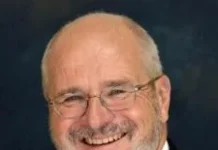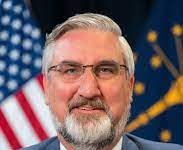Commentary: George H.W. Bush And History’s Strange Pivot
By John Krull
TheStatehouseFile.comÂ
INDIANAPOLIS – A lifetime ago, it seems, I talked with conservative commentator William F. Buckley Jr. about President George H. W. Bush’s political travails.
Buckley came to Indiana to deliver a speech at a time when Bush’s presidency was unraveling. The resolution of the first Persian Gulf War had left Bush with stratospheric public approval ratings – 90 percent in some polls.
Never again would Americans express such complete agreement about a president.
Then it all started to come undone.
It wasn’t Democrats but his fellow Republicans who undid Bush.
They were unhappy about a tax increase Bush supported. He had pledged not to raise taxes while campaigning, but – concerned about galloping deficits – he changed his mind. The members of his own party reacted with rage.
On a trip to Washington, D.C., I’d talked with the then rising bad boy of conservative politics, Rep. Newt Gingrich, R-Georgia, who led the charge against Bush. Gingrich described with a wicked glee how he’d taken Bush’s legs out from under him.
“We reminded him not to take us for granted,†Gingrich smirked.
I asked Buckley why Republicans had turned with such fury on one of their own.
Buckley was well-positioned to answer. He was the intellectual godfather of modern conservatism and had moved through life on courses parallel to Bush.
They were about the same age. They both were Yalies, sons of privilege and World War II veterans. Both served in the intelligence community. Both were leaders in the effort to turn America away from the New Deal and move the nation rightward.
Buckley being Buckley, he talked at length and with a rhetorical flourish about how the gulf between the president and his party had widened. But then he got to the nub of the matter.
“He is conservative,†Buckley said of Bush, “but he is not a conservative.â€
On such strange points history pivots.
George H.W. Bush’s presidency was perhaps the last moment in our history when Americans could achieve something resembling consensus. The dissolution of his term in office anticipated the dissension that would come to dominate the nation.
He struggled with questions of authenticity. He labored in the shadow of Ronald Reagan, his predecessor in the White House, a figure who projected both a sense of bluff, even oblivious assurance and an aura of easy approachability. Bush suffered by comparison.
There was irony in this.
Bush was what Reagan only had pretended to be on the screen – a genuine war hero and a crack athlete, the captain of his college baseball team. And, whereas the Gipper in real life was a distant figure who remained unknown and unknowable to his children, his supposed friends and his supporters – to everyone, it seemed, but his second wife – Bush possessed the gift of true friendship and endeared himself to both allies and opponents.
Because Reagan embodied a sense of lost strength, candidate Bush struggled to prove his toughness, to battle what critics at the time referred to as the “wimp factor.†(One cartoonist often depicted Bush carrying a purse.)
Once in office, though, it wasn’t Bush’s aggressiveness but his restraint that merits respect. Perhaps because he had been a real war hero, he didn’t have to prove his bravery by proxy.
He resisted both Iraqi dictator Saddam Hussein’s attempt to conquer neighboring Kuwait and uninformed political pressure urging him to invade Iraq and overthrow Saddam in response. Bush knew large-scale land wars in the Middle East were easier to start than to end, wisdom his son failed to acquire.
Bush also was unimpressed with the magical realism embraced by the true believers of supply-side economics – “voodoo economics,†he called it. Thus, he pushed for the tax increase that helped lose him the White House but set the stage for the surpluses and prosperity of the 1990s.
In short, he was a president who tried to do what presidents should do – hold the country together, even when it was trying to fly apart, and protect it, even from itself.
Neither Buckley nor I knew in that conversation a lifetime ago the price George H.W. Bush would pay for trying to do that.
Or that, in crucial ways, when they said farewell to his presidency, many Americans also would be saying farewell to each other.
May he rest in peace.
FOOTNOTE: John Krull is director of Franklin College’s Pulliam School of Journalism, host of “No Limits†WFYI 90.1 Indianapolis and publisher of TheStatehouseFile.com, a news website powered by Franklin College journalism students.
This article was posted by the City-County Observer without opinion, bias or editing.









